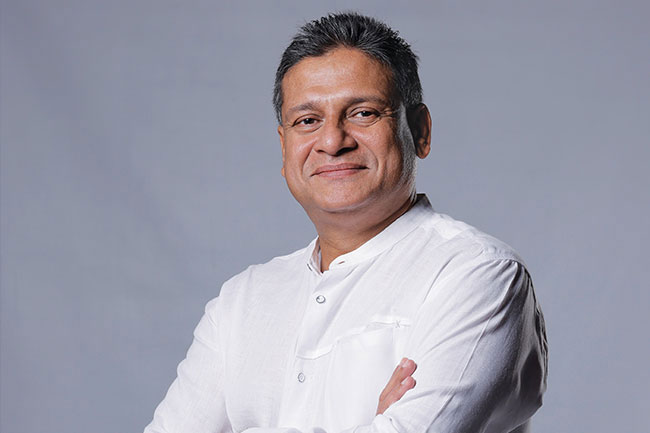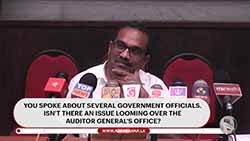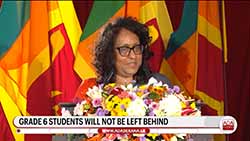‘Glad that President heeded our consistent critique of Penal Code amendment’ – Dilith
October 17, 2025 07:25 pm
‘Sarvajana Balaya’ leader and Member of Parliament Dilith Jayaweera says he is glad that President Anura Kumara Dissanayake has heeded their consistent critique of a policy measure that would have “irreversibly harmed the growth of Sri Lanka’s primary and secondary education.”
In a post on ‘X’, he claimed that many provisions in the Penal Code (Amendment) Bill expose the “rapid dissolution of Sri Lanka’s autonomy and the West’s influence on our value system.”
“We must be clear about how we move forward and not compromise on the civilizational values that build our identity, especially the selfless role played by teachers,” the MP said.
The Sarvajana Balaya leader’s comments come in the wake of President Dissanayake today stating that no law will be passed in Parliament that the common citizens does not agree with.
Speaking during the National Teachers’ Conference organized by the Ceylon Teachers’ Service Union at the Sugathadasa Indoor Stadium this morning (17), the President said that if the people reject those laws, then those laws will not be effective.
President Dissanayake said: “We must fulfill the expectations of parents for their children with justice and fairness. For that, we have focused on major educational reforms. Also, some controversy has been caused by certain legal reforms and amendments to Acts.”
“I will tell you one thing, it is true that such an Act has been presented to Parliament. That Act has not been passed in Parliament. Laws are not made for me or for Parliament, but for the common citizens.”
“I assure you that no law that the common citizens do not agree with will ever be passed in Parliament. Laws are made for you, laws are made for the people.”
“If laws are made for the people, if the people are supposed to abide by the laws, if the people reject those laws, then those laws are of no use. We have paid special attention to that. I assure you that we make laws in the interest of the citizens and not in the interest of the rulers,” he said.












